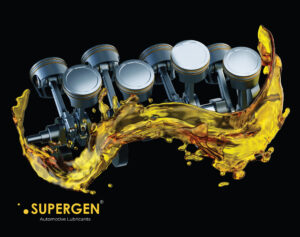In the world of heavy-duty vehicles, engine performance is paramount. Selecting the right engine oil is crucial to ensuring that these hard-working engines run efficiently, reliably, and for as long as possible.
From trucks and construction equipment to agricultural machinery, every type of heavy-duty vehicle has specific lubrication needs that require the right type of engine oil.
In this guide, we’ll explore everything you need to know about choosing the best engine oil for heavy-duty vehicles, including types of oil, important specifications, benefits, and tips to keep your engines running smoothly.
Why Engine Oil Matters for Heavy-Duty Vehicles
Heavy-duty vehicles operate under extreme conditions, from hauling massive loads to running for long hours in hot or cold weather. Engine oil serves as the lifeblood of the engine, lubricating parts, reducing friction, and keeping the engine cool.
The wrong type of oil can lead to increased wear, overheating, sludge buildup, and, ultimately, costly repairs.
Using the right oil is essential for:
- Protecting Engine Components: High-quality engine oil prevents wear and tear on parts that endure high friction.
- Temperature Management: Heavy-duty vehicles generate a lot of heat, and oil helps to manage temperature and prevent overheating.
- Optimizing Fuel Efficiency: Proper lubrication reduces friction, which in turn helps the engine run more efficiently, saving fuel.
- Extending Engine Life: Quality oil reduces buildup and wear, helping the engine last longer and requiring fewer repairs.
Key Factors to Consider When Choosing Engine Oil for Heavy-Duty Vehicles
a. Viscosity Grade
Viscosity is a measure of the oil’s thickness and its ability to flow at various temperatures. For heavy-duty engines, a higher viscosity grade may be necessary, as it allows for better protection under high-stress conditions. Common viscosity grades for heavy-duty applications include 15W-40, 10W-30, and 5W-40.
- Multi-Grade Oils: These oils provide versatility, flowing easily in cold temperatures while maintaining thickness in hot conditions. For instance, a 15W-40 oil is ideal for areas with a wide range of temperatures.
- Single-Grade Oils: While less common, these can still be useful in some climates but typically offer less flexibility than multi-grade oils.
b. API and ACEA Ratings
The American Petroleum Institute (API) and the Association of European Automobile Manufacturers (ACEA) provide ratings that indicate oil performance. Heavy-duty vehicles typically require oils with an API rating of CK-4 or CJ-4, which are formulated for high-performance diesel engines. ACEA ratings, such as E7 and E9, specify oils that meet European heavy-duty engine requirements.
c. Additives
Additives are chemicals mixed with base oil to enhance its performance. Common additives in heavy-duty engine oils include:
- Detergents: Keep engines clean by preventing deposit buildup.
- Anti-Wear Agents: Form a protective layer on engine parts to minimize wear.
- Antioxidants: Slow down the oxidation process, helping the oil last longer.
- Dispersants: Prevent sludge and deposits, keeping the oil cleaner for extended periods.
d. Manufacturer Recommendations
Most vehicle manufacturers provide detailed guidance on the ideal oil type, viscosity, and rating for their engines. Always consult the vehicle’s manual to ensure compatibility and optimal performance.
e. Environmental Conditions
Consider the operational environment, such as temperature ranges, load requirements, and usage intensity. For example, engines that operate in cold conditions may need a low-viscosity oil that flows quickly at startup, while those in hot or extreme-duty applications benefit from thicker, high-viscosity oils that maintain stability under stress.
Types of Engine Oil for Heavy-Duty Vehicles
Understanding the different types of engine oils available is critical for making an informed decision:
a. Conventional Oil
Conventional oil, derived from refined crude oil, is widely used and cost-effective. However, it may not offer the same level of protection or durability as synthetic oils. It’s best suited for lighter-duty applications or older engines, where extreme performance isn’t as critical.
b. Synthetic Oil
Synthetic oils are engineered to provide superior performance in extreme conditions. They have excellent resistance to oxidation, maintain viscosity stability, and work well under intense heat or cold. These oils are ideal for heavy-duty engines that operate in challenging environments.
c. Synthetic Blend Oil
Synthetic blends combine the affordability of conventional oil with the performance benefits of synthetic oil. This type of oil is well-suited for fleet managers seeking improved performance without the full cost of synthetic oils.
d. High-Mileage Oil
High-mileage oils are specially formulated for vehicles with over 75,000 miles on the odometer. They include additives that help to reduce oil consumption, minimize leaks, and maintain engine seals. For aging heavy-duty vehicles, high-mileage oils can be a great choice.
Benefits of Using Quality Engine Oil in Heavy-Duty Vehicles
a. Improved Fuel Efficiency
High-quality engine oils reduce internal friction, allowing the engine to run smoothly and use less fuel. Even small improvements in fuel economy can lead to significant cost savings over time, especially for fleets.
b. Enhanced Engine Protection
Heavy-duty engines are subject to high levels of wear. Quality oils with anti-wear additives help protect vital components, reducing the likelihood of breakdowns and expensive repairs.
c. Longer Oil Change Intervals
Synthetic and premium oils last longer than conventional oils, meaning you can go farther between oil changes. This reduces downtime, labor costs, and overall maintenance expenses for your fleet.
d. Reduced Environmental Impact
High-quality oils burn cleaner, resulting in lower emissions and a reduced carbon footprint. Many oils are now formulated to meet strict environmental regulations, making it easier for companies to stay compliant.
Tips for Maintaining Optimal Oil Performance in Heavy-Duty Engines
a. Perform Regular Oil Analysis
Oil analysis helps you monitor the health of your engine and detect any issues before they become major problems. It can reveal contaminants, oxidation levels, and wear particles, providing insight into the condition of both the oil and the engine.
b. Follow a Strict Oil Change Schedule
While high-quality oils can extend oil change intervals, it’s essential to adhere to a regular schedule. This ensures that engines are always operating with clean, effective oil, reducing the likelihood of wear and overheating.
c. Use the Right Oil Filter
Oil filters play a critical role in maintaining oil cleanliness. Be sure to use high-quality filters that are compatible with your oil and engine type, as poor-quality filters can allow contaminants to circulate through the engine.
d. Educate Drivers on Oil Check Protocols
Drivers should regularly check oil levels and top-off as needed. Additionally, they should be trained to recognize any warning signs of low oil levels or oil-related engine issues, such as unusual sounds or overheating.
Common Pitfalls to Avoid When Choosing Engine Oil for Heavy-Duty Vehicles
- Using the Wrong Viscosity: Not all oils are suitable for all temperatures or engine types. Choosing the wrong viscosity can lead to inadequate protection or excessive wear.
- Ignoring Manufacturer Specifications: Each engine is unique, and following manufacturer guidelines ensures optimal performance and longevity.
- Neglecting Additive Requirements: Skipping oils with essential additives may save costs upfront but can lead to increased wear and maintenance expenses in the long run.
FAQs
1. What’s the best oil type for heavy-duty engines in cold climates?
For cold climates, a lower viscosity oil, such as 5W-40, can be beneficial, as it flows more easily at lower temperatures and provides faster lubrication at startup. Synthetic oils also perform better in extreme cold, as they resist thickening.
2. How can I tell if my oil needs changing sooner than the recommended interval?
Regular oil analysis is a reliable method to monitor oil health. Signs that oil may need changing sooner include dark, thick oil, a burnt smell, or engine noise. Consulting a mechanic or lab for oil analysis can confirm if early changes are necessary.
3. Is synthetic oil worth the higher price for heavy-duty vehicles?
Yes, synthetic oils provide superior performance, protection, and durability, making them cost-effective over time. They resist breakdown, reduce wear, and extend intervals between changes, ultimately reducing maintenance costs and downtime.








